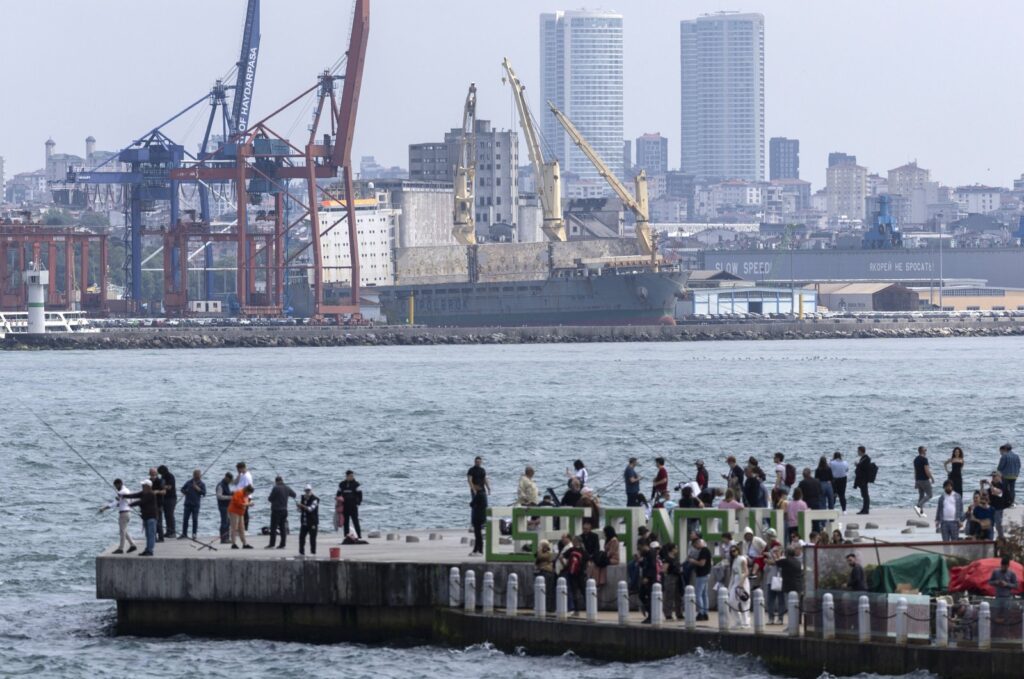Turkey’s economy expanded 5.7% in the first quarter, official data showed on Friday, one of the world’s fastest growth rates at the start of the year and in line with market expectations, driven by robust domestic demand despite tight monetary policy.
A series of aggressive interest rate hikes by central banks in the face of rising inflation will weigh on economic activity, and growth is expected to moderate for the rest of the year.
Finance Minister Mehmet Şimşek said the country was on track for more balanced and sustainable growth this year thanks to rules-based and predictable policies.
“Second-quarter indicators point to the economy continuing to be in balance, and balanced growth is expected in 2024, with a positive contribution from net foreign demand,” Simsek said in a statement.
Analysts polled by Reuters had forecast growth of 5.7% in the first quarter of this year, compared with an average forecast of 5.8% in a Bloomberg survey.
Turkey’s economy is expected to grow 4.5% annually in 2023, and grew 4% in the first quarter of the year, despite a slowdown in its main trading partners and a devastating earthquake in February.
Vice President Cevdet Yilmaz stressed that Turkey has maintained uninterrupted economic growth for 15 consecutive quarters in an environment where “political stability and security guarantee economic predictability.”
The country’s gross domestic product (GDP) reached 8.8 trillion Turkish lira ($285.57 billion) in the first quarter, according to the Turkish Statistical Institute (TurkStat).
Yilmaz posted on social media platform X (formerly Twitter) that annual national income had reached a new all-time high of about $1.16 trillion.
Turkey has become the fastest growing economy compared to EU and G20 countries that released first-quarter data, Trade Minister Omer Bollat said.
Citing a worsening inflation outlook, the central bank has raised interest rates by a total of 4,150 basis points in its tightening cycle since June last year, most recently to 50% in March.
In April and May, the Bank decided to keep the one-week repo rate unchanged, taking into account the delayed effects of monetary tightening, and stated that it would tighten further if the inflation outlook worsened.
Annual inflation is expected to hit about 75 percent this month, according to officials and market forecasts, and tighter policy is expected to help it fall in the second half of the year.
Earlier this month, the central bank raised its year-end inflation forecast to 38 percent and said it would “leave all tools in place” to avoid a longer-term deterioration in the inflation outlook.
In January and February, inflation rose by 6.7% and 4.53%, respectively, mainly due to a large increase in the minimum wage and a series of price revisions in the new year. In March and April, the rate of increase slowed to around 3.2%.
Last month’s annual inflation rate was 69.8% compared to the previous year.
Economists say an annual minimum wage increase and households bringing forward purchases in anticipation of higher inflation drove the strong growth ahead of local elections on March 31.
Despite tightening financial conditions, gross domestic product (GDP) grew 2.4 percent in the first quarter from the previous quarter on a seasonally and calendar adjusted basis, according to data from the Turkish Statistical Institute.
Total value added in the first quarter increased by 11.1% in the construction industry and 5.5% in the information and communications industry.
The data showed that final consumption expenditure by resident households increased 7.3 percent year-on-year. Exports increased 4 percent while imports decreased 3.1 percent during the same period.
Simsek suggested that a slowdown in domestic consumption would lead to lower inflation.
“Our policies, a balanced growth mix driven by a declining current account deficit, increasing confidence, improving expectations and accelerating foreign capital inflows will go a long way in containing inflation,” he said.
Government final consumption expenditure increased 3.9% from the same period last year, while gross fixed capital formation increased 10.3%.
Yilmaz stressed that rising fixed capital investment and slower growth in consumer spending indicate that growth is proceeding with a “healthier composition and in line with our deflationary approach.”
Yilmaz said net exports’ contribution to growth turned positive for the first time in five quarters.
Borat said net exports are expected to have a positive impact on growth throughout 2024 due to the trend of rising exports and falling imports that began in the second half of last year.
“Such a realignment of growth composition will not only lead to a higher quality growth trajectory, but also enhance macroeconomic stability,” he said.
A Reuters poll predicts economic growth of 3.15% in 2024.
The government says these policies will help change the composition of economic growth and help contain inflation while achieving sustainable growth levels.
According to a forecast released in September, the government expects the economy to grow by 4% this year.
Yilmaz said Turkey is in a period marked by a declining current account deficit, increasing foreign exchange reserves and improving risk indicators.
“The monthly progress we’ve made on tackling inflation, our top priority, will lead to a significant annual decline later this year. The unemployment rate remains in the single digits,” he said.
“We will continue to steadily implement our medium-term plan for stable, balanced and inclusive growth to achieve lasting increased prosperity.”


